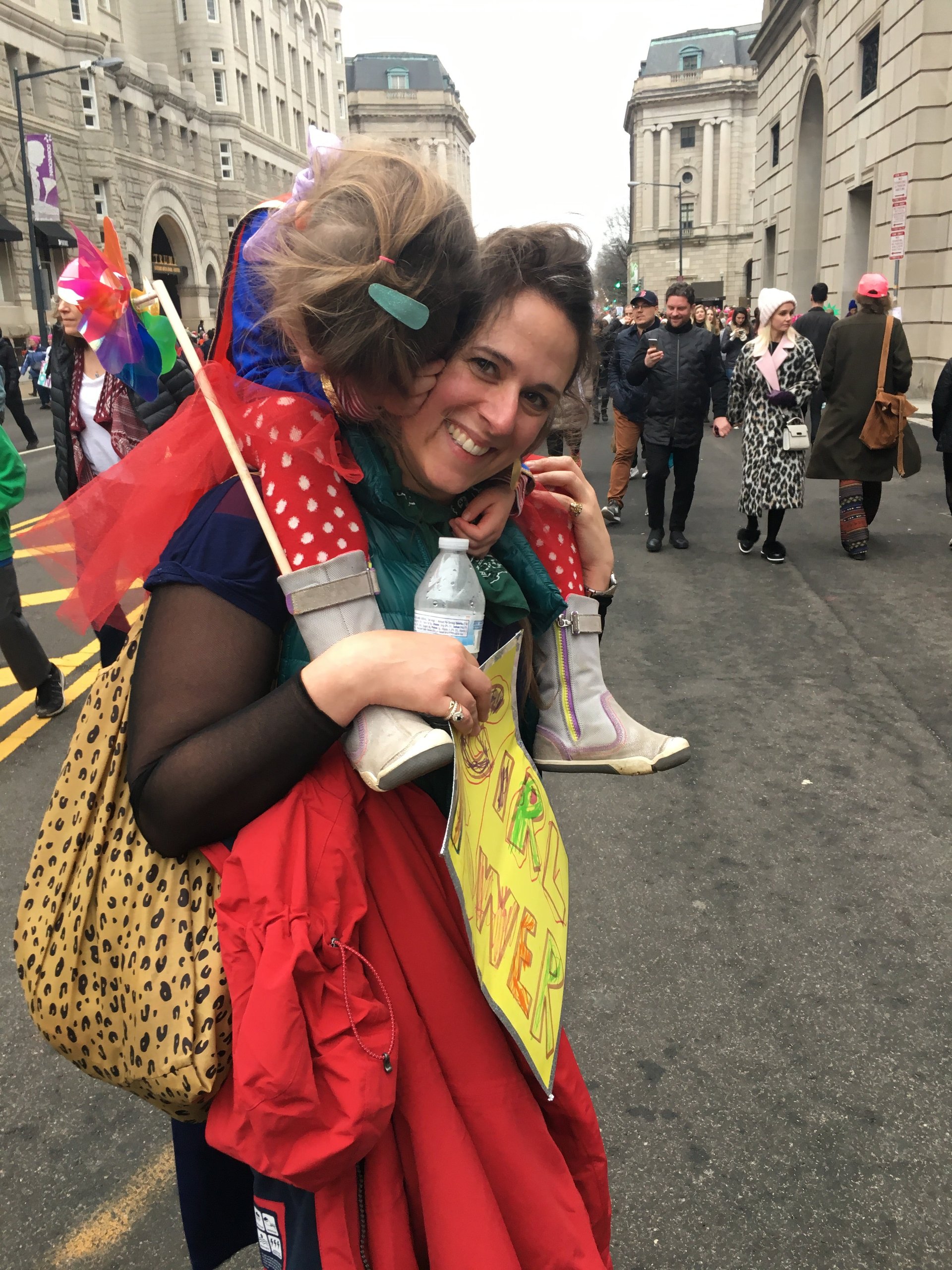What parents wanted to teach their daughters by bringing them to the Women’s March
People were booing loudly as they walked by the Trump International Hotel on Pennsylvania Avenue during this Saturday’s Women’s March in Washington DC. But nothing could rouse 4-year-old Gloria. Clad in a red cape and tutu, she was dead asleep on her mom’s shoulders.


People were booing loudly as they walked by the Trump International Hotel on Pennsylvania Avenue during this Saturday’s Women’s March in Washington DC. But nothing could rouse 4-year-old Gloria. Clad in a red cape and tutu, she was dead asleep on her mom’s shoulders.
“She’s been enjoying being in the spotlight in her Super Girl costume, which really isn’t a costume, it’s who she is as a human being,” said her mom, Amy Drown, an administrative director at a rehabilitation center in Massachusetts. “It’s been interesting navigating all the ‘Oh, she’s so cute’ because that’s the hardest thing about raising strong, smart girls.” Instead, Drown prefers to tell her daughter: “You’re awesome, strong, and powerful, and it’s not just about being adorable.”

Drown was one of the many parents who decided to take their daughters to the massive march in DC and others around the country, to show the next generation just how powerful women can be. Parents toting children said they were there to teach their daughters to speak up for what they believe in, and about the power of community.
The message was getting across. “I just know that I have a voice now and that I can say what I want to,” said 13-year-old Abby from Maryland. “[Being here] feels good, because I know that other people don’t think Trump is a good person, and believe all that racism and sexism.”
Some parents attending the march recalled the difficulty of explaining the democratic process to children disappointed with the November election outcome.
After election day, Abby was so devastated that she had to come home early from school. Abby’s mother, Faith Helphenstine, said that the march was an important “visual” to show Abby that the results of the election don’t mean everyone shares the new president’s views. “We wanted to send a message, particularly to Abby, that despite our anger there is something positive that we can do,” Helphenstine said.
Another mother put it in solution-oriented terms. Before coming to the march, she explained to her daughter, 5-year-old Ellie, that “the democratic process is not always about winning, it’s about voting, and having your voice heard and getting back up there, and doing Plan B. Plan A didn’t work, getting Hillary in, so Plan B is that we will unite with other like-minded people.”
Ellie “gets that,” said her mother (who did not want her name used for professional reasons).
Some kids put their opposition to Trump in their own terms: “He’s mean,” said one. “He’s a terrible person,” said another. Helphenstine said her 9-year-old son saw Trump as a “bully” before she ever discussed politics with him.
“It’s less about the democracy of it at that age,” Helphenstine explained, “but believing in the goodness of people.”